Response to a talk by Fanny Howe
What is the relationship, say, to style, solitude, the daily practice of sitting down to work, is this a question of faith and how does one deal with the simultaneous urge to explain and the agitation with explanation of any kind?
Yesterday I pulled out a book of poems by Brautigan, remembering that he was a student of Spicer’s, a sort of touchstone for me of everything that I came to know about poetry in California and thus about poetry, loving and hating his mundane brevity in the same measure that I came to know poetry in myself and trust what it meant.
And that a friend’s father who lived in the hills of Marin was very proud of once having played chess with Brautigan at a café. He simply came in, sat down, and they played, without saying a word.
I was thinking exactly of that distance between different “persons†in the sense of first, second, third, and how we traverse that distance both inside and out, in language and action, what is gained and what is left behind.
I find myself very frequently checking the time throughout the day, but what am I waiting for? I find that I am waiting to eat, to go someplace, to see someone, do something, commit some act demanded of me by the terms of my employment or duty as student, or enjoy some entertainment. Mostly I am waiting to eat.
I do not find that I am waiting or looking forward to being alone with myself, unless it is as a change in the situation of being too long with somebody else or being otherwise occupied with many other people at work or at school. Is this because I am always with myself – but set that aside for a moment – the point is that there is simultaneously a desire that time not go by so quickly, that I not keep waking up and having to do over again the things I’ve already done, wash the same dishes, eat the same meals, and yet there is a desire to eat and drink the same delicious food and coffee just as there is at the same time a desire to encounter something new in the day and a fear of that encounter, that difference that will force a decision or even a minor irritation.
And this is a perception or a sensation that one turns inwards, and it is not wrong to feel one way or the other, it simply is: at times it seems incredibly easy and enjoyable to write poems because there is an endless profusion of subjects and one never feels exactly the same way about them and they never sit still for long, but at the moment of feeling so one ceases in some way to be able to perform the difference and so one goes into the other state, that is, of feeling that nothing changes and everything has been said and the forms are all used up.
So is there as one might posit a state of “positive†bewilderment that does not attempt to finish things off or get to the end of this feeling and how does one attain it… And perhaps a testament to the need of the two parts of the self for each other, the small human doubting part with the divine questioner who already knows the answers, yet never an easy or equal relationship, one always leading the other, the endless variations and ritual of that.
The question of faith then on so many levels: for me personally (as for me symbolically in a state of Poetry), to wake up every day both dreading and welcoming it, the change and the sameness, not as answer but as question not to be finished off or explained but playing with the urge to do that. As one might play with a hangnail or attempt to run a four-minute mile.
I am extremely agitated, for example, I want to destroy my enemies, but even the attempt to do so would both give them reality and give them victory on some level and so I cannot do that, cannot even name them. I want to think this is somewhat close to the final statement in Howe’s essay: “After all, the point of art – like war – is to show people that life is worth living by showing that it isn’t.â€
For example in the film version of The Subterraneans – an otherwise terrible movie on every level – there was one moment I thought profound almost in spite of itself. A woman character – the best character in the film perhaps because a wholly new character not in the book, and so not perverted from its original conception – is seen by another woman character as she puts on the black and white face paint that she wears as a sort of “bohemian disguise.â€
“I used to be considered beautiful, but they couldn’t see what was inside… Society hides behind fake smiles and pleasant hellos, so I decided to hide behind a real mask…â€
This as an accidental expression of what the artist must in a sense do deliberately, for self-preservation, to blend in, merely to survive, function, observe. Call it distance. A refusal to live the life that would name or reveal anything with the kind of resounding finality the world calls for at every turn. And thereby show that it’s worth living at all.
And war paint? Disguise that hides in plain sight the reality of the inner soul.
I recognize more and more that I need my enemies to grow and prosper – if I didn’t have them the mind would strike out to find new ones, new fears, worries, it is the immediate easy victory that ought to be suspected and feared.
Last night I dreamed not of an enemy but of an old friend I had not spoken to in a long time. There was once a great deal of anxiety around keeping in contact with this friend. In the dream this came up again, but she reassured me that she would always come and to trust my intuition as a sign of her coming.
More things happened in the dream – I stood out front saying goodbye to some other friends, after she had gone, casually pissing in the front yard, feeling only mild embarrassment that anyone might see. But the main thing was this crux of feeling the elements combined to carry forward. In dreams, yes, there is seldom a satisfying sense of anything ending. This happens and that and people appear and disappear. But there is a sort of precision and wildness within absolute limits, as in this poem by Brautigan:
“AH, GREAT EXPECTATIONS!â€
Sam likes to say, “Ah, great expectations!â€
at least three or four times in every
conversation. He is twelve years old.
Nobody knows what he is talking about when
he says it. Sometimes it makes people
feel uncomfortable.

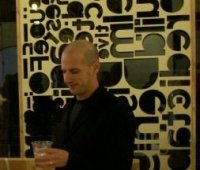

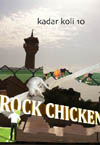
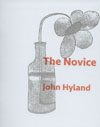

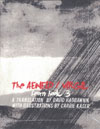
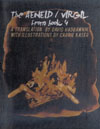
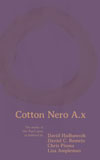
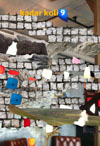
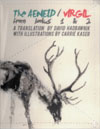
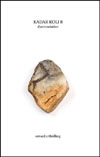
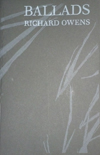
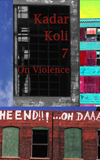
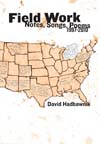
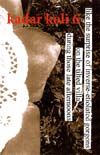
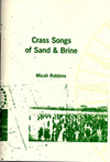
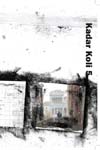
So now you’re writing about Roxanne, too. You know, I recently discovered she (as played by Janice Rule) was used as the cover image for the printing of the novel put out to coincide with the film’s release.
actually i wrote the year before last, around the time we saw the film. i can’t remember–did we talk about this or was it just in your article?–the notion that she’s by far the most interesting character in the movie.
I was probably working on the article then, so perhaps we discussed it.
I like the voice in these prose pieces, by the way.
thanks–i’ve got a lot more of them to post, in between the usual rants and whatnot…
“Whatnot” is my second favorite English word.
“So, how’s things?”
“What things?”
“You know–things, life, whatnot…”
“LIFE is not WHATNOT, and besides, it’s none of your business…”